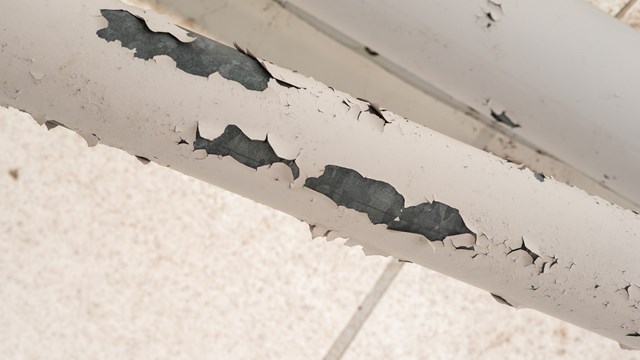
Insurance is always a "hot-button" topic among co-op corporations and condo association boards. Since insurance is an annual expense that is not mandated by a union contract or a city tax assessment, many boards regularly "shop" their coverage to lower a controllable expense. Yet, insurance often represents only a very small percentage of a building’s operating costs. Thus, boards could be found negligent if they fail to have adequate coverage to meet an emergency. [Such a negligence claim would be covered by Directors and Officers (D&O) insurance, incidentally.]
The recent highly publicized Biondi case, based on the refusal of the board to rent an apartment to an interracial couple, has re-focused attention not only on the quality of D&O liability insurance in particular, but on co-op and condo insurance policies in general.
A federal jury decision was appealed all the way to the New York State Court of Appeals this spring. The Appeals Court upheld an order that a former board president, Nicholas Biondi, pay a $124,000 punitive judgment award personally while his building’s D&O policy paid the $230,000 compensatory damage award in the case.
The Biondi ruling highlights an uncoverable risk in New York State, namely punitive damage awards. Public policy in New York State prohibits punitive damage insurance because the availability of such coverage would eliminate the important financial deterrent to misdeeds.
Some offshore insurance companies, which are unregulated by the New York State Department of Insurance, are now offering policies to cover punitive damages. Licensed New York insurance brokers are prohibited from selling these contracts. In short, utilizing good judgment and sound professional advice are the only safe ways to avoid a costly, uncovered loss.
While insurance prices should be an important consideration, some boards look only at the bottom line. Today, the cost of insurance is less important as the coverage limits. The insurance market of the last few years has been very favorable to co-ops. Most buildings are currently paying less than half of the premiums they paid for the comparable coverage eight or ten years ago.
Eliminate Coverage Gaps
Given the favorable market conditions and the litigious society in which we live, boards should look very closely at closing coverage gaps and eliminating potential unforeseen traps. Board members should bear in mind that not every risk is insurable. Some buildings, for example, have wanted to open and run day care centers. Insurance policies for such facilities often contain exclusions for sexual molestation. In the event of such a claim, the building would have no coverage. Risk management specialists routinely advise that avoidance is a safer loss-control technique than insurance.
As you review your building’s polices, ask your broker which risks are not covered instead of which risks are covered. Some, like nuclear radiation or war claims are quite unlikely! Others, such as asbestos-related lawsuits are not that far-fetched. The most common exclusion which creates problems for most co-ops and condos, even with the best policies, is the issue of wear and tear. All policies exclude gradual deterioration claims. Policies are designed to cover sudden and accidental occurrences such as a fire. Thus, boards should not expect their insurance to reimburse a seepage claim resulting from long-postponed maintenance work. Again, risk avoidance by good management is critical to eliminate costly, uncovered claims.
Property coverage should be as broad as possible. Be sure your policy is "special form" which includes the largest number of potential claims. Then, look for endorsements (policy additions) that broaden coverage even further. Some key extras include coverage for flood, earthquake, sewer back-up and damage from underground hydrants and mains. Another common loss that is not generally included except by endorsement, is seepage.
Another set of vital extra coverages are known as Increased Cost of Construction, Demolition and Zoning Law coverage. These enhancements protect a co-op or condo in the event that a catastrophic claim necessitates demolition and major re-construction. These policy enhancements close the basic coverage gaps. For example, without this coverage, a co-op would not be reimbursed for post-loss "betterments" such as handicapped ramps or ADA-approved emergency lighting that was not part of the pre-loss building. Without these coverages, the co-op could be faced with a substantial uncovered bill.
Policies should be written so that losses are paid in full at current replacement value. In order to accomplish this, the board will have to insure the building at a reasonable value per square-foot. Obviously, the more insurance purchased, the higher the cost. Insurers currently write "agreed value" based on about $100 to $125 per square-foot for fire-resistive construction. This valuation is certainly enough to cover partial losses in full. However, in today’s construction environment, these figures may be inadequate to replace the entire building in the worst case scenario.
Thus, boards must evaluate whether to insure against the maximum probable or maximum possible loss. Selecting insurance values is as much of an art as a science. As noted, prices remain significantly below the premiums of a decade ago in today’s insurance marketplace. As a result, there is little downside cost risk to carrying limits for the maximum possible loss. If premium prices do rise in the future, board members may have to scale back to cover more realistic figures such as the maximum probable loss.
Insure Above Basic Policies
Energy systems such as boilers, central air-conditioning systems, and even sophisticated electrical apparatus such as elevator control panels, are also excluded by basic policies. Therefore, no building with this equipment should be without a boiler and machinery policy to close these coverage gaps. The best policies are comprehensive forms that include business income (monthly maintenance or common charges) loss as well.
Similarly, pollution exposures are not covered by standard policies. Often, insurance contracts include specific exclusions for lead, asbestos, underground storage tanks and the like. Special pollution policies are now available that close many of these basic policy loopholes.
Liability insurance is an even more difficult coverage limit to quantify. The child’s question of "How high is up?" comes readily to mind, because that is the question many boards ask about the risk of a calamity that would kill or injure multiple people. In the liability area, staggering limits of coverage, often up to $200 million are currently available through risk purchasing groups for surprisingly small premiums. Most of the property and liability insurers who are active in the New York market have a special high-limit umbrella program set up. These policies not only cover against serious injury claims, but supplement the D&O coverage as well. While prices for this insurance are still at historic lows, it also pays to buy the maximum coverage limits and worry about reducing the limit later when budget considerations may mandate such a cutback.
Although generally considered a payroll issue rather than an insurance item, co-ops and condos are required by law to carry Workers’ Compensation and New York State Disability insurance. These policies are standardized so that following the law by having them in place is the main loophole to avoid. Some carriers offer generous dividend plans that can reduce cost based on favorable claims experience. Boards can save money by shopping around for these coverages.
Mr. Owens is president of Owens Group, an insurance brokerage firm in Englewood Cliffs, New Jersey, which serves co-ops and condos.






Leave a Comment